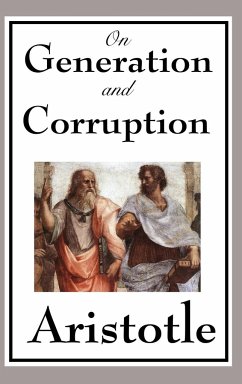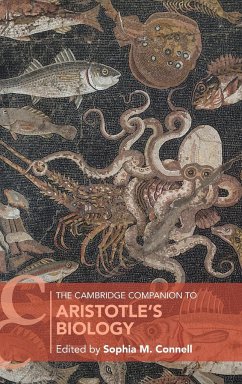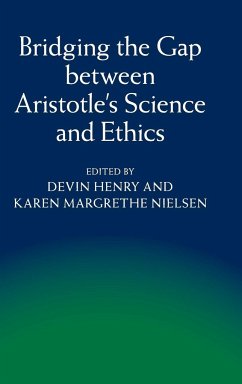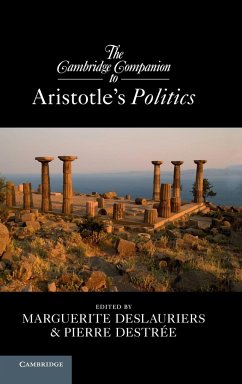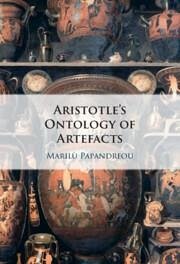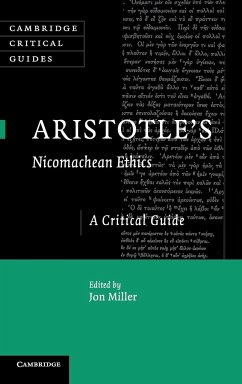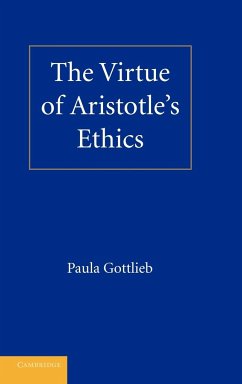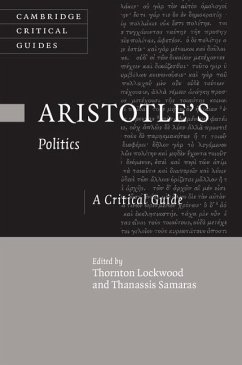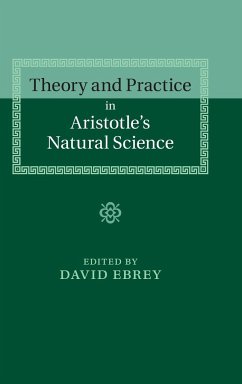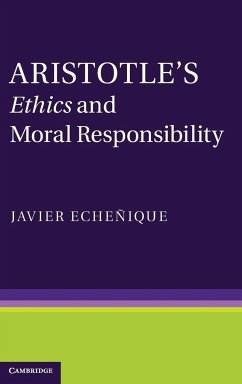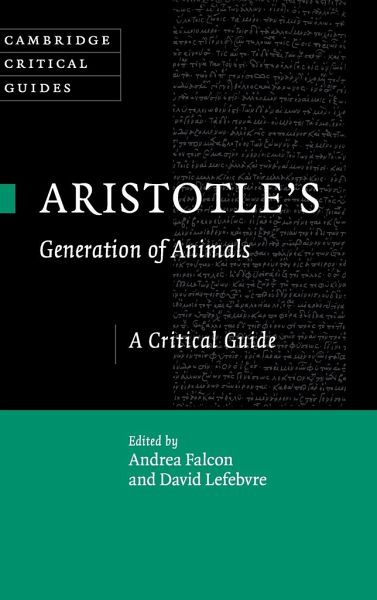
Aristotle's Generation of Animals
Versandkostenfrei!
Versandfertig in 1-2 Wochen
109,99 €
inkl. MwSt.
Weitere Ausgaben:

PAYBACK Punkte
55 °P sammeln!
Generation of Animals is one of Aristotle's most mature, sophisticated, and carefully crafted scientific writings. His overall goal is to provide a comprehensive and systematic account of how animals reproduce, including a study of their reproductive organs, what we would call fertilization, embryogenesis, and organogenesis. In this book, international experts present thirteen original essays providing a philosophically and historically informed introduction to this important work. They shed light on the unity and structure of the Generation of Animals, the main theses that Aristotle defends i...
Generation of Animals is one of Aristotle's most mature, sophisticated, and carefully crafted scientific writings. His overall goal is to provide a comprehensive and systematic account of how animals reproduce, including a study of their reproductive organs, what we would call fertilization, embryogenesis, and organogenesis. In this book, international experts present thirteen original essays providing a philosophically and historically informed introduction to this important work. They shed light on the unity and structure of the Generation of Animals, the main theses that Aristotle defends in the work, and the method of inquiry he adopts. They also open up new avenues of exploration of this difficult and still largely unexplored work. The volume will be essential for scholars and students of ancient philosophy as well as of the history and philosophy of science.





